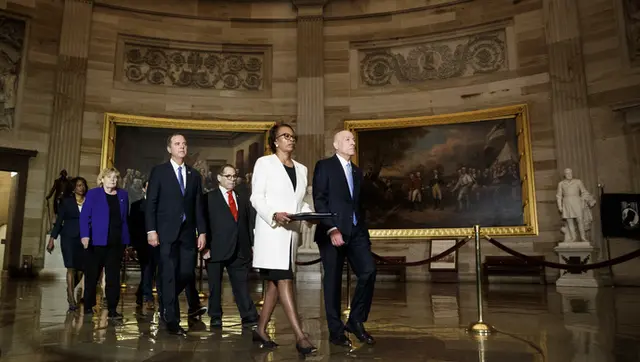The White House is sharing more details about Donald Trump’s first trip to the Asia Pacific.
Briefing reporters on Monday, a White House official said it will be Trump’s longest trip to date, signaling the importance of the region to US foreign policy.
Trump will travel to Japan, the Republic of Korea (ROK), China, Vietnam, and the Philippines for 11 days in November. He will be received for state visits in Seoul and Beijing.
First Lady Melania Trump will accompany the president to Seoul, Tokyo, and Beijing, her spokesperson said.
In Seoul, Trump is also expected to make a speech before the country’s National Assembly. The unnamed White House official told reporters Trump is unlikely to visit the demilitarized zone between the Democratic People’s Republic of Korea and the ROK.
"I can tell you that security is not a concern," the official said.
The official added that ROK President Moon Jae-in has invited Trump to visit Camp Humphreys, a US military base, and said it would be difficult for Trump to have to visit both places.
Trump’s Beijing stop is capturing the most media interest.
The US has said it intends to make the DPRK nuclear issue and balancing the China-US trade relationship the centerpieces of its conversations.
Another unnamed official added that the administration hopes to see China do work bilaterally that goes beyond what it’s already doing to pressure Pyongyang.
The official added that after the 19th CPC National Congress, the Trump administration hopes that Beijing will have more opportunity to “get some things done in the relationship.”
Chinese President Xi Jinping will receive Trump for a state visit on November 8, and Trump will spend two full days in meeting and visits there.
The invite was initially offered when Xi and his wife, Peng Liyuan, visited Trump’s Mar-a-Lago estate in April.
"The visit will send a clear message that for bilateral economic relations to be sustainable over the long term, China must provide fair and equitable treatment to US firms and ceases predatory trade and investment practices," the official said.
Trump has often used the US trade deficit with its trading partners as a measure of progress in the economic relationship. The China-US trading relationship is no different, the White House said.
"We have huge barriers that American companies have to surmount to try to get access to the Chinese market," the official said.
Beijing has long argued that the China-US trade deficit would be substantially lower if manufactured goods produced in multiple countries – but assembled in China – were not counted in China’s tally. The value of the dollar and the Chinese yuan also have an impact on the trade deficit Washington holds with China.
(CGTN)
 简体中文
简体中文

